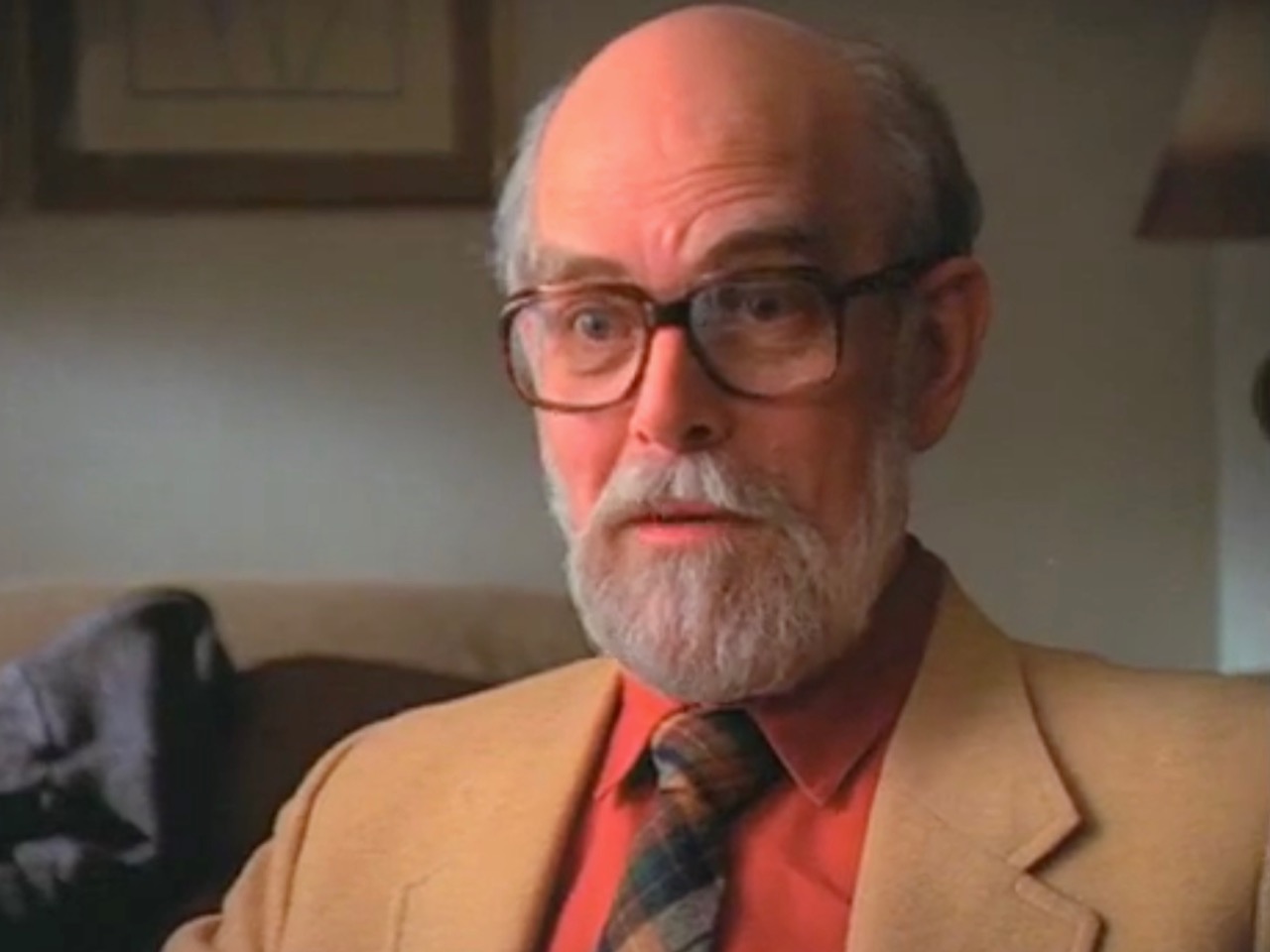[off camera remarks, mark, clap board, rewind sound] [George Stith] Concerning the AAA, when the government decided the best way to get rid of some of the cotton was to plow it up, they left it to the farmer to divide the sharecropper and tenants part with him. But it didn't work out that way. Not very many of them divided anything. So when the government made a ruling that the sharecropper and tenant would have to have his part, they started getting rid of them on the farm. But now, when they got rid of them, some they kept, because they had to have somebody on the farm to work, but they couldn't get rid of all of them.
Those that were left, they would send the check. The government sent a check to the state. The state would send it to each county, and the county agent would make sure the farmer got it, and it was left to the farmer to get the share cropper and tenant his part, so they didn't do it. So when they finally got a ruling there, they would have to be paid. They would send that check to the plantation owner. He would say, well, the government said, I got to pay you. I don't think I owe you, but I'm going to give it to you. You all come up, and your checks are here. Come up, and he'd lay that check upside down, sign right here, and he'd sign your name and say, now you know you owe.. This will go on your debt. And he'd take the check and keep it, because he had got you to sign it. I refused to sign mine and stayed there three months. He sent for me to come up one day. He said, I got your check up here. I'll tell you what I'm going to do.
I'm going to give it to you. You sign it, I'm going to give you your check. I'm going to pay you cash money, and you keep your mouth closed. Yeah, I did. [laugh] Not many people were getting money. So I mean, you know, that was a victory. But then we decided it wasn't fair for just a few, so we went all out. Then they started sending the check to you from the county agent by mail. It still comes through the county agent. They sent you your portion of the check. But we had a problem with that. Very few people had a mailing address. Couldn't get a post office box, so he got his mail at the commissary. So the bossman got the mail anyway. He opened the check. If he decided to keep it, it wasn't a violation of a federal law. He kept the check. You come up and sign it again. So we had that problem to work on. We never did all together get it settled. But a lot of people began to get a rural outbox, whatever. And if it went to the post office in a small town—
Well, a lot of times your post office was at your commissary's door. A lot of commissaries had the post office for their entire farm. Your mail went there. [Interviewer] Now tell me about the process of actually plowing the crop under. [George Stith] Well, the crop would be partially matured. Say, for instance, it would be bloomed and had some bolls on it. You go out there and you take your mules and plow it up. Now, the mule wouldn't walk the top of the row. He wasn't trained to walk on top of the row. And you put him up there, he wouldn't stay up there. So they had to take two mules, put them to what was called a middle buster, and put the mules in the middle, and put the middle buster under the cotton to plow it up, because that mule would not stay on top of the row. He had been trained to walk in the middle. He would not walk on the top of cotton. So you had to use the same process to plow the cotton up. You used to plant it, two mules. Most of it plowed it up.
 Oscar Fendler Discusses Landlords, Tenant Farmers, and Sharecroppers (1992)
Oscar Fendler Discusses Landlords, Tenant Farmers, and Sharecroppers (1992)
 John Twist Discusses Poverty and Hunger (1993)
John Twist Discusses Poverty and Hunger (1993)
 David Goeppinger Discusses Economic Devastation in the South (1992)
David Goeppinger Discusses Economic Devastation in the South (1992)
 Nancy Neale Talks About the Missouri Roadside Demonstration (1993)
Nancy Neale Talks About the Missouri Roadside Demonstration (1993)
 John Twist Discusses the Agricultural Adjustment Act and Its Consequences (1993)
John Twist Discusses the Agricultural Adjustment Act and Its Consequences (1993)
 Oscar Fendler Discusses Evictions of Tenant Farmers and Sharecroppers (1992)
Oscar Fendler Discusses Evictions of Tenant Farmers and Sharecroppers (1992)
 George Stith Describes the Start of the Southern Tenant Farmers’ Union (1992)
George Stith Describes the Start of the Southern Tenant Farmers’ Union (1992)
 Nancy Neale Discusses the Formation of the Southern Tenant Farmers’ Union (1993)
Nancy Neale Discusses the Formation of the Southern Tenant Farmers’ Union (1993)
 Nancy Neale Talks About the STFU’s Decision to Be Interracial and Nonviolent (1993)
Nancy Neale Talks About the STFU’s Decision to Be Interracial and Nonviolent (1993)
 Miller Williams Discusses a Violent Response to the Union from White Southerners (1993)
Miller Williams Discusses a Violent Response to the Union from White Southerners (1993)
 Nancy Neale Discusses the STFU as a Model for Change to Come (1993)
Nancy Neale Discusses the STFU as a Model for Change to Come (1993)